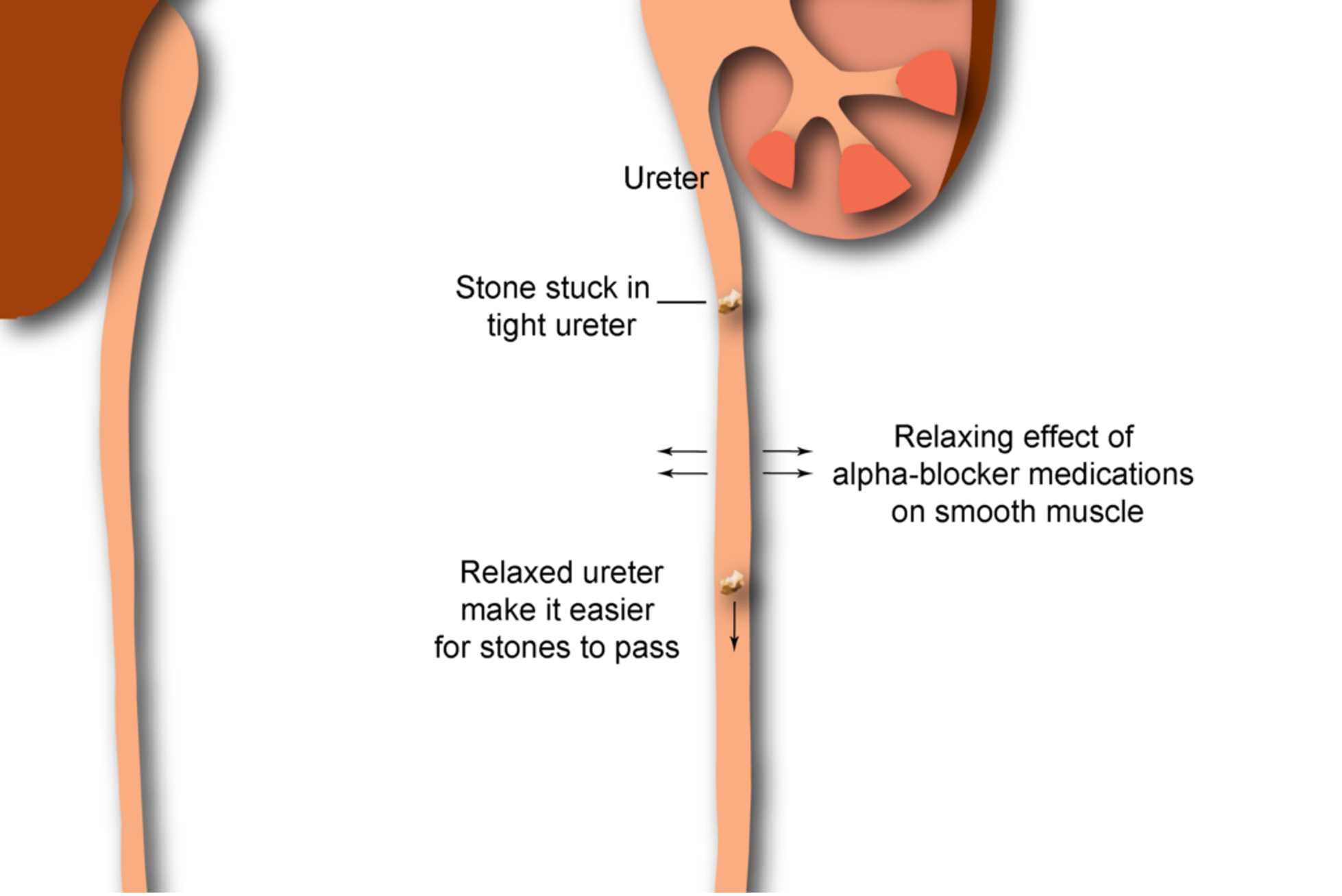Passing a Kidney Stone: Complete Guide
If you are passing a kidney stone, your chances of successful stone passage are strongly related to stone factors including the size of the stone and its location. Smaller stones and stones closer to the bladder have a higher chance of passing. Between 50-70% of patients can typically pass a stone less then 1cm especially if it is further down the ureter, closer to the bladder.

Wouldn’t it be great if you could take something to improve your chances of passing your stone? It turns out there are medications your doctor can prescribe for you which may be effective. This treatment is known as “medical expulsive therapy”. The most commonly used medication for this purpose is tamsulosin (Flomax or Tamsulosin). These medications are known as alpha-blockers and are normally used to relieve prostate obstruction in men (by relaxing smooth muscle in the prostate) or to lower blood pressure in patients with hypertension (by relaxing smooth muscle in blood vessels).
How do they work in stone passage?
The ureter is the hollow structure which transports urine from the kidney to the bladder. It has muscles which contract rhythmically in a process known as peristalsis. These movements normally help to speed the passage of urine down to the bladder. Medications to help pass stones may work by relaxing these ureteral muscles resulting in a wider and less constricting ureter for stones to more easily pass through.

How well do they work?
A large combined study (a metanalysis) done by the American Urologic Association, suggested for stones <10mm in the part of the ureter closer to the bladder found that with Flomax, patients passed stones 75% of the time, while without it only 55% passed stones. Possibly because these medications are more effective in the lower ureter, these effects were not seen with stones in the upper ureter.
An earlier Cochrane analysis pooled the findings from 15 studies with a combined total of 5,787 participants and their combined results suggested kidney stone patients who took an alpha blocker medications were slightly more likely to pass their stones at a calculated relative risk of 1.16 (for each 1,000 patients who took an alpha blocker, 116 more passed their stones compared to those who took placebo (a sugar pill). Those who took an alpha blocker also seemed to more quickly pass their stones (3.4 days faster), have fewer hospitalizations and take less pain medication. The effect of these medications seemed to be stronger for stones larger than 5mm. The downside of these medications was a slight increase in side effects like low blood pressure, fainting, racing heartbeat, and irregular heart beats.
The takeaway on medical expulsive therapy.
The bottom line appears to be that medications used for medical expulsive therapy may modestly improve your chances of passing your stone, especially if it is in the lower part of the ureter, and how quickly you pass your stone. They may also reduce the need for pain medications or hospitalization. They however may cause side effects in a small number of patients. The decision on whether to use these medications should ultimately be made with your medical provider and should take into account your chances of passing your stone spontaneously and whether you are at increased risk for consequences from any potential side effects.
Stay Involved
Nearly 10% of the United States population has suffered from stones. You can help connect with our community and support our mission to accelerate kidney stone research.
Complete the form to learn more about KSC and its initiatives.
By submitting this form, you consent to receive educational emails, research updates, and event invitations from Kidney Stone Collaborative. We will never sell or share your information with third parties. You may unsubscribe at any time.
Information provided is for educational purposes only and is not a substitute for medical advice. Please consult a qualified healthcare professional for personal medical concerns.

